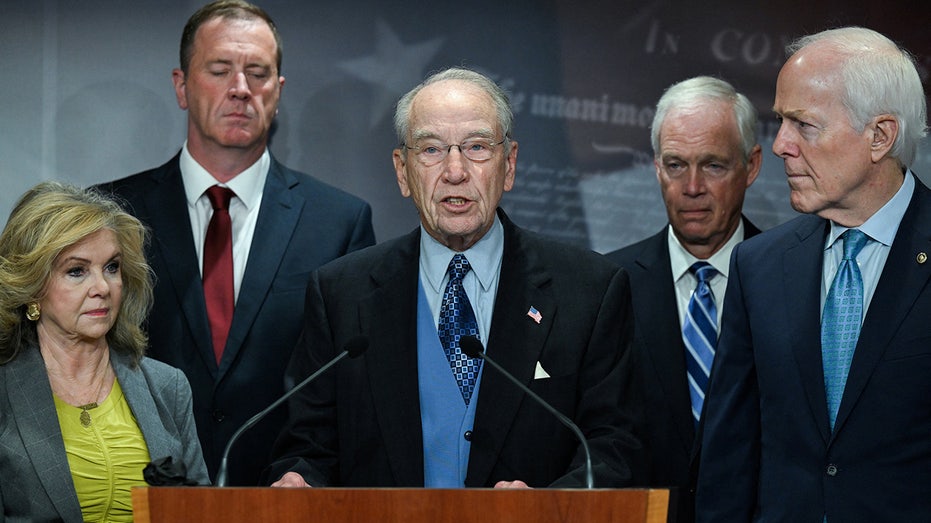A quiet addition to a recent government funding bill has ignited a fierce battle within the Republican party, centered on a new power for senators: the ability to sue the Justice Department over secretly obtained phone records. Supporters see it as a vital check against potential political abuse, a long-overdue safeguard for congressional independence.
The controversy stems from subpoenas issued by former Special Counsel Jack Smith during the “Arctic Frost” investigation, targeting the phone records of ten Republican senators in 2022. These subpoenas, revealed by Senator Chuck Grassley, sparked outrage, with some Republicans comparing the investigation to the Watergate scandal.
Critics, however, allege the provision is a thinly veiled attempt at self-enrichment, allowing senators to potentially collect $500,000 in damages. They argue it’s a self-serving measure, offering no concrete plan to prevent future executive overreach.
At the heart of the dispute lies the use of gag orders, routinely sought by prosecutors to maintain the secrecy of ongoing investigations. In this case, Judge James Boasberg authorized these orders, preventing Verizon and AT&T from informing the senators about the subpoenas for a year. This action has drawn intense scrutiny, given Boasberg’s past rulings and ongoing cases involving the Trump administration.
Legal experts point to the Constitution’s “speech or debate” clause, which protects lawmakers from legal repercussions for actions taken during their official duties. They argue the gag orders may have unlawfully infringed upon this protection, hindering the Senate’s ability to conduct its business freely and openly.
Jack Smith maintains that his actions were entirely lawful and consistent with established Department of Justice policy, seeking only toll records – data about the timing of calls, not their content. However, existing law already prohibits court orders from blocking phone companies from notifying senators about such requests.
The new provision clarifies this law, explicitly granting senators the right to sue the DOJ for damages. A notable exception exists for lawmakers who are themselves the targets of an investigation, such as former Senator Bob Menendez.
Senator Lindsey Graham has publicly embraced the measure, stating his intention to sue over the acquisition of his phone data. He views “Arctic Frost” as a severe breach of the separation of powers and a deliberate attempt to undermine a potential political comeback.
Graham argues that holding the government accountable through financial penalties is crucial to deter future abuses of power. He believes a government without accountability poses a direct threat to individual freedom and the democratic process.
The provision has faced opposition from some House Republicans, who joined Democrats in expressing concerns. House Speaker Mike Johnson has announced plans to vote to remove the provision from the funding bill, citing concerns about its fairness and appropriateness.
Representative Greg Steube even voted against the broader bill in protest, stating he wouldn’t support a measure that could potentially award Senator Graham half a million dollars. This internal division highlights the deep-seated disagreement within the party.
Senator Marsha Blackburn, while supporting efforts to challenge the DOJ’s actions, has signaled she prefers a court ruling on the legality of the subpoenas rather than a monetary award. For her, the fight is about principle, not profit.
Even if the provision is ultimately repealed, the underlying constitutional questions surrounding the subpoenas and gag orders are likely to end up in court. Senators are already planning a hearing in December to focus on Judge Boasberg’s role in the matter, with some even calling for his impeachment.
The controversy underscores a growing tension between the executive and legislative branches, raising fundamental questions about the limits of executive power and the protection of congressional independence. It’s a battle that could reshape the balance of power in Washington for years to come.





